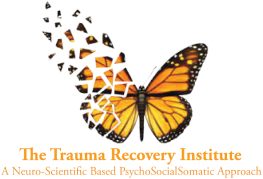02 May Stress the biggest Killer, how stress impacts our neurobiology and leads to disease
Stress Researchers have demonstrated that the brain responds to psychological stress in the same way that it reacts to physical threats: by activating the hypothalamic-pituitary-adrenal (HPA) axis and “fight or flight” responses via the sympathetic nervous system (SNS). Robert Sapolsky is one of the world’s leading neuroscientists.In studying wild baboon populations, Sapolsky examined how prolonged stress can cause physical and mental afflictions. His lab was among the first to document that stress can damage the neurons of the hippocampus. Sapolsky has shown, in both human and baboon societies, that low social status is a major contributor to stress and stress-related illness. He boils down the contemporary human’s relationship with stress as follows: “We are not getting our ulcers being chased by Saber-tooth tigers, we’re inventing our social stressors—and if some baboons are good at dealing with this, we should be able to as well. Insofar as we’re smart enough to have invented this stuff and stupid enough to fall for it, we have the potential to be wise enough to keep these stressors in perspective.” Sapolsky’s study of stress in non-human primates has offered fascinating insight into how human beings relate to this universal pressure.
A stressor is anything in the outside world that knocks you out of homeostatic balance. So to reestablish that balance, you secrete adrenaline and other hormones. You mobilize energy and you deliver it where it’s needed, you shut off the inessentials like the sex drive and digestion, you enhance immune defenses, and you think more clearly. You’re facing a short-term physical crisis, and the stress response is what you do with your body. For 99 percent of the species on this planet, stress is three minutes of screaming terror in the savannah, after which either it’s over with or you’re over with. That’s all you need to know about the subject if you’re a zebra or a lion. If you’re a human, though, you’ve got to expand the definition of a stressor in a very critical way. If you’re running from a lion, your blood pressure is 180 over 120. But you’re not suffering from high blood pressure—you’re saving your life. Have this same thing happen when you’re stuck in traffic, and you’re not saving your life. Instead you are suffering from stress-induced hypertension.
We humans turn on the stress response with memories, with emotions, with thoughts, and the whole punch line is: That’s not what it evolved for. Do it regularly enough, and you’re going to damage your cardiovascular system. Increased blood flow hammers on the walls of your blood vessels, causing inflammation. Fat and glucose and cholesterol glom on and begin to clog your arteries. That’s bad news. You are more at risk for chronic fatigue, sleep disruption, muscle atrophy, and probably most importantly, adult-onset diabetes, this once obscure disease that’s just on the edge of being the number one killer in this country.
Chronic stress also does bad things to the nervous system. Stress kills neurons in the part of the brain called the hippocampus and weakens the cables between neurons, so they can’t talk to each other. This impairs the formation and retrieval of long-term memory. The opposite thing happens in the amygdala, which is where we see fear in a brain scanner. In the hippocampus, stress causes stuff to shrivel up. But stress feeds the amygdala. It actually gets bigger. Chronic stress creates a hyper-reactive, hysterical amygdala, and this tells us tons about what stress has to do with anxiety disorders. Another domain: the mesolimbic dopamine system. Dopamine is a neurotransmitter that is about reward and pleasure. Cocaine works on the dopamine system. All the euphorians do. What are the effects of chronic stress on this part of the brain? Those pathways get depleted of dopamine, and this takes away your ability to feel pleasure. So if stress depletes your dopamine, what have you just set yourself up for? Major depression.
What about the frontal cortex? It’s the most human part of the brain; we’ve proportionally got more of it than any other species does. And what does the frontal cortex do? It does gratification postponement, self-discipline, long-term planning, emotional regulation. It’s the last part of the brain to fully mature—that doesn’t happen until you’re 25 years old, which explains a lot about the freshmen year of college. This has a very interesting implication. If this is the last part of the brain to fully develop, by definition, then, it is the part of the brain least constrained by genes and most sculpted by experience. What does chronic stress do to the frontal cortex? Atrophy of neurons, disconnecting circuits. As a result, you make the most idiotic decisions, which are going to haunt you for the rest of your life, and yet you think they’re brilliant at the time. That’s another effect of chronic stress: Your judgment goes down the tubes.
In summary of the latest research on stress it is very clear that some stress is good and some stress in bad for us. The impact of stress is also directly linked to our rank within society such as social class, career and wealth so it would appear that for many there is no way to avoid stress, however this may not be the most important factor for avoiding the impact on stress as it has been shown in many studies that two people exposed to the exact same level of stress even within low rank and social status can have a completely different neurobiological outcome based on a number of stress managment factors including social support structures such as peer support and healthy outlets such as speaking to a health professional, including high anti oxidants foods and immune boosting foods in our diets and participating in stress relief practises such as dance, meditation and yoga.
[fusion_builder_container hundred_percent=”yes” overflow=”visible”][fusion_builder_row][fusion_builder_column type=”1_1″ background_position=”left top” background_color=”” border_size=”” border_color=”” border_style=”solid” spacing=”yes” background_image=”” background_repeat=”no-repeat” padding=”” margin_top=”0px” margin_bottom=”0px” class=”” id=”” animation_type=”” animation_speed=”0.3″ animation_direction=”left” hide_on_mobile=”no” center_content=”no” min_height=”none”]
https://www.youtube.com/watch?v=5PRzKongcLU
Working with Stress at Trauma Recovery Institute
Trauma Recovery Institute offers unparalleled services and treatment approach through unique individual and group psychotherapy. We specialise in long-term relational trauma recovery, sexual trauma recovery and early childhood trauma recovery. We also offer specialized group psychotherapy for psychotherapists and psychotherapy students, People struggling with addictions and substance abuse, sexual abuse survivors and people looking to function in life at a higher level. Trauma recovery Institute offers a very safe supportive space for deep relational work with highly skilled and experienced psychotherapists accredited with Irish Group Psychotherapy Society (IGPS), which holds the highest accreditation standard in Europe. Trauma Recovery Institute uses a highly structured psychotherapeutic approach called Dynamic Psychosocialsomatic Psychotherapy (DPP).

Dynamic Psychosocialsomatic Psychotherapy (DPP) at Trauma Recovery Institute Dublin
Dynamic Psychosocialsomatic Psychotherapy (DPP) is a highly structured, once to twice weekly-modified psychodynamic treatment based on the psychoanalytic model of object relations. This approach is also informed by the latest in neuroscience, interpersonal neurobiology and attachment theory. As with traditional psychodynamic psychotherapy relationship takes a central role within the treatment and the exploration of internal relational dyads. Our approach differs in that also central to the treatment is the focus on the transference and countertransference, an awareness of shifting bodily states in the present moment and a focus on the client’s external relationships, emotional life and lifestyle.
Dynamic Psychosocialsomatic Psychotherapy (DPP) is an integrative treatment approach for working with complex trauma, borderline personality organization and dissociation. This treatment approach attempts to address the root causes of trauma-based presentations and fragmentation, seeking to help the client heal early experiences of abandonment, neglect, trauma, and attachment loss, that otherwise tend to play out repetitively and cyclically throughout the lifespan in relationship struggles, illness and addictions. Clients enter a highly structured treatment plan, which is created by client and therapist in the contract setting stage. The Treatment plan is contracted for a fixed period of time and at least one individual or group session weekly.

“Talk therapy alone is not enough to address deep rooted trauma that may be stuck in the body, we need also to engage the body in the therapeutic process and engage ourselves as clients and therapists to a complex interrelational therapeutic dyad, right brain to right brain, limbic system to limbic system in order to address and explore trauma that persists in our bodies as adults and influences our adult relationships, thinking and behaviour.”
[/fusion_builder_column][/fusion_builder_row][/fusion_builder_container]


Sorry, the comment form is closed at this time.